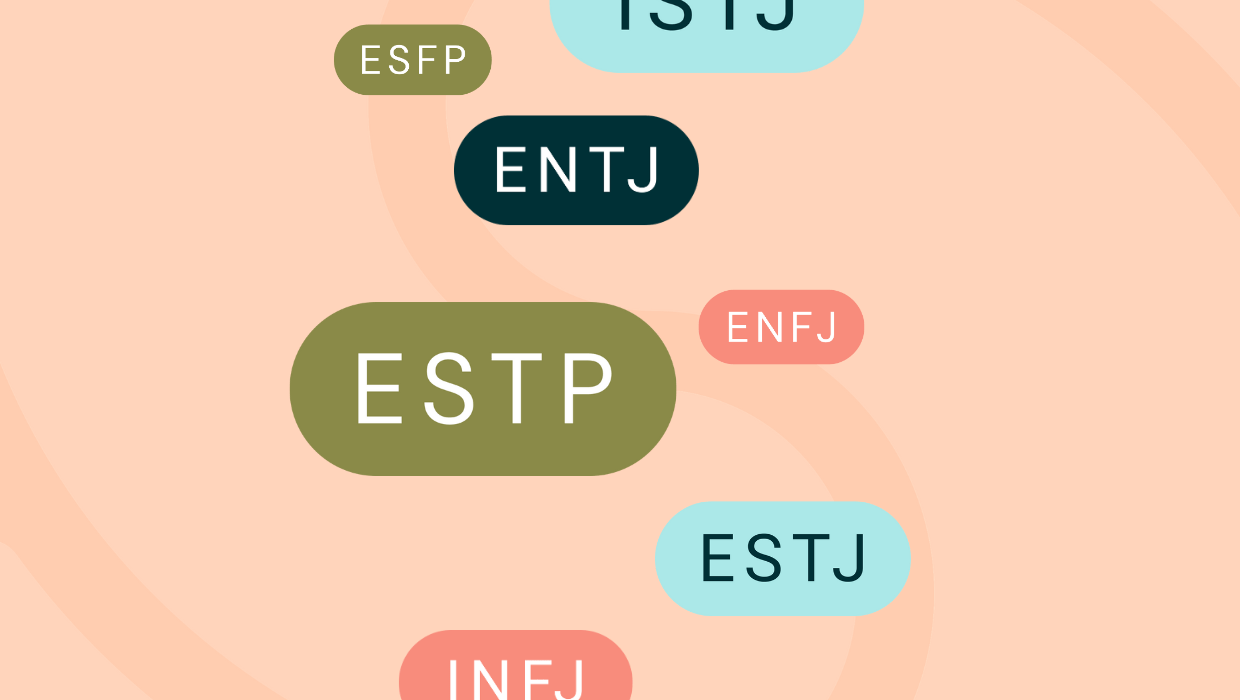The Most Toxic Personality Types Ranked
Today we rank the 16 personality types from least to most toxic. We also take a look at what makes each type toxic. We all have the potential to be a little bit toxic, even if we don’t mean to be. As individuals, we each have our strengths and weaknesses, but some of us are just more likely to be toxic than others.

Today we rank the 16 personality types from least to most toxic. We also take a look at what makes each type toxic. We all have the potential to be a little bit toxic, even if we don’t mean to be. As individuals, we each have our strengths and weaknesses, but some of us are just more likely to be toxic than others.
Toxicity can include a range of things from being manipulative, neglectful, and passive-aggressive. It can also include gaslighting, martyring, or using guilt trips.
If you think you are exhibiting any of these behaviors, it’s important to take a step back and reflect on how you interact with those around you. Take the time to ask yourself why you feel the need to be controlling or manipulate conversations and relationships.
It’s also important to remember that toxicity is not limited to one gender or personality type. We can all exhibit toxic behaviors if we are not mindful of how we communicate and interact with others.
Finally, it’s important to remember that we all have bad days and make mistakes. Being toxic doesn’t always define who you are. So take the time to practice self-care, and be mindful of your words and actions. And be kind to yourself as well as others.
When you are in a toxic relationship but it can be hard to recognize when you are in the situation. If you are worried you are in a toxic relationship, check out the 21 signs you’re in a toxic relationship.
So, without further ado, let’s rank the 16 personality types from least to most toxic. If you don’t know your personality type, you can take our free 5-minute personality test.
Least to most toxic personality types

16. ISTP
ISTPs are the least toxic personality type. They are relaxed, easy-going, and practical people who are great at problem-solving and making decisions. ISTPs prefer to stay away from drama and toxic behavior, often just living their life by their own rules. They are incredibly independent and resilient individuals who strive to be the best version of themselves. However, their independent nature means they can be quite rebellious and uncooperative at times. To stay out of the toxicity zone, ISTPs need to appreciate rules are not always there to be broken but, in fact, can be good for them. When they are able to be flexible and accepting of rules, ISTPs have the potential to use their powerful problem-solving skills and independent nature to make a positive impact on the world.

15. ISTJ
The second least toxic personality type is ISTJs. ISTJs are typically reliable, hardworking individuals who take their responsibilities seriously and stick to a plan. However, they can also be stubborn and rigid which can lead to unhealthy behavior such as inflexibility or refusal to compromise. To stay on the healthy side of things, ISTJs need to practice flexibility and remain open-minded in order to keep a balanced lifestyle. When they can do this, they are incredibly dependable individuals who have the ability to bring stability and productivity into any situation.

14. ENFP
The third least toxic personality type is ENFPs. ENFPs can be incredibly creative and enthusiastic people who are passionate about life and always looking for new ways to express themselves. However, they can sometimes take their spontaneous and fun-loving nature too far. This can lead to impulsive or reckless behavior that can have negative consequences. To stay out of the toxicity zone, ENFPs need to remember to practice restraint and think before they act. They need to also learn how to contain their emotions in order to stay emotionally balanced. When healthy, ENFPs can use their imaginative minds and enthusiasm to make positive changes in the world.

13. ISFJ
ISFJs are the thirteenth most toxic personality type. ISFJs have a strong sense of responsibility and loyalty which can be an incredible trait. However, ISFJs can sometimes take on too much or become overwhelmed by their need to please others. This can lead to unhealthy behavior such as excessive worrying or people-pleasing. When they are able to avoid toxicity, ISFJs use their natural talents of practicality, empathy, and service-oriented mindsets to help create a more compassionate world. ISFJs just need to remember to practice self-care, set boundaries, and take time out for themselves in order to stay healthy.

12. ESFJ
ESFJs are the twelfth most toxic personality type. They are typically very kind, thoughtful, and enthusiastic. ESFJs love to be around people and looking after others is something that comes naturally to them. However, they can sometimes put too much importance on the opinions of others and become too eager to please them. This can lead to unhealthy behavior such as over-sensitivity, people-pleasing, or even manipulation. ESFJs need to be mindful of their own needs and learn how to set boundaries in order to remain emotionally balanced. When they are able to maintain a healthy balance of selflessness and selfishness, they can use their amazing qualities to make the world a better and more compassionate place.

11. INFP
INFPs are the eleventh most toxic personality type. INFPs can be incredibly sensitive and caring people who go out of their way to help others. Their compassion and creative minds can lead them to great achievements. However, INFPs can become overwhelmed and easily discouraged which can lead to unhealthy behavior such as avoidance or emotional outbursts. They can also be easily taken advantage of due to their trusting nature. To stay out of the toxicity zone, INFPs need to learn how to take care of themselves and learn healthy boundaries so that they don’t become drained by others’ needs. When they are their best selves, they can bring their brilliant minds and big hearts to life-changing endeavors.

10. ESTJ
The tenth most toxic personality trait is ESTJs. ESTJs are highly organized and goal-oriented people who crave structure and stability. However, when their need for order becomes too extreme, they can become controlling and rigid in their ways which can lead to toxic behavior. Healthy ESTJs know the importance of balance in life; they use their natural leadership skills to help others while also being open to different perspectives. Unhealthy ESTJs can be domineering and insensitive, often pushing their own agenda over others’ interests. To stay on the healthy side of things, ESTJs need to remember to remain open-minded and practice flexibility in order to keep a balanced lifestyle.

9. INTJ
INTJs are ninth on the list. INTJs are ambitious and intelligent people who are always ten steps ahead of the game. However, their highly analytical nature can lead to them getting stuck in “overthinking mode” and not being able to let go of the details. When this happens, INTJs can become overly critical and judgmental of themselves and others which can lead to toxic behavior. Healthy INTJs are able to use their brilliant minds for good by being mindful, remaining open-minded, and learning to be flexible. However, unhealthy INTJs can be cynical, arrogant, and uncooperative. To stay on the healthy side of things, INTJs need to practice self-care and take time for themselves to relax and unwind.

8. INFJ
INFJs are the eighth most toxic personality type. An INFJ’s toxic personality trait is a tendency to be overly critical of themselves, which can lead to guilt and self-loathing. This can make them prone to pessimism and feelings of inadequacy, which could lead to unhealthy behavior such as manipulation or passive aggression. To avoid slipping into toxicity, INFJs need to be conscious of their self-talk and learn how to respond with compassion instead of criticism. INFJs typically use their insight and empathy to help others in meaningful ways. They are naturally kind and understanding; they just need a reminder now and then that they deserve the same amount of kindness as everyone else.

7. INTP
INTPs are the seventh most toxic personality type. INTPs are typically intelligent and creative people. They are analytical and logical people who have a unique way of looking at the world. However, they can sometimes be aloof and unemotional. When this is done in an unhealthy way, they can become distant, cold, and selfish. This can lead to a lack of empathy which makes it difficult for INTPs to connect with others on an emotional level. To stay on the healthy side of things, INTPs need to work on developing their emotions and being conscious of how their actions affect others. They can be some of the most insightful and innovative people around when they stay grounded and mindful of their behavior.

6. ESFP
Last but not least, we have ESFPs – the sixth most toxic personality type. They are often seen as carefree and fun-loving, which can make them incredibly charming in social situations. But underneath that charm, there is an underlying impulsivity that can lead to trouble if it’s left unchecked. Unhealthy ESFPs can be overly self-centered and often seek out any kind of attention, even if it’s negative. This can lead to toxic behavior, as they will do whatever it takes to get the attention they crave. Healthy ESFPs use their charisma and enthusiasm to make positive connections with others. They understand the importance of respect and are able to take responsibility for their actions. With the right attitude, ESFPs can be some of the most vibrant and inspiring people around.

5. ISFP
ISFPs are fifth on the list and the most prone to toxicity out of all introverts and feeler personality types. This is due to their independent nature and desire for freedom. While this can be a great asset, it also means that ISFPs will often do anything to avoid feeling trapped or controlled. This can lead to impulsive behavior, an unwillingness to take responsibility for their actions, and a tendency towards manipulation when they feel backed into a corner. For ISFPs to stay on the healthy side of things, it’s important for them to be mindful of their own behavior and work on taking responsibility for their choices. With a little focus and practice, they can use their independence as an advantage rather than a source of toxicity.

4. ENTP
Next up we have ENTPs. ENTPs can be devilishly clever and eerily charming, often leading them to get their way. Unfortunately, it’s not always for the best as they can be prone to excessive risk-taking and overly logical decision-making. This can lead to situations where their behavior is seen as manipulative and even narcissistic. Healthy ENTPs use their quick wit, charm, and intelligence to help others and solve problems; however, there can be a thin line between healthy and toxic behavior with this personality type. To avoid slipping into unhealthy behavior it’s important for ENTPs to be conscious of the impact their actions have on others. With a little self-awareness and self-control, ENTPs can be some of the most innovative and inspiring people around.

3. ENFJ
ENFJs are in third place for the most toxic personality type. While ENFJs are often seen as warm and caring but, like most of us, they can be prone to unhealthy behavior. Their toxic trait is manipulation and they sure know how to use it. ENFJs have strong people skills. And unhealthy ENFJs have a tendency to use these skills to manipulate situations and people in order to get what they want, often leaving their victims feeling used and hurt. While it’s true that ENFJs can be incredibly persuasive, they would do well to remember the value of genuine communication and respect. Healthy ENFJs use their strong people skills to help others and build meaningful relationships. This is a great way for them to channel their energies in a positive way.

2. ENTJ
ENTJs are in second place closely behind first place. They are fiercely independent and driven, which can be both a blessing and a curse. On the one hand, their ambition and determination can help them achieve great things; on the other, they can be incredibly single-minded in pursuit of their goals. This can lead them to be cunning and ruthless, disregarding the feelings and opinions of others in order to reach their end goals. It’s important for ENTJs to be conscious of how their behavior affects those around them, as this can help prevent toxic behaviors from taking hold. When used responsibly, however, the ambition and focus of an ENTJ can be a great asset.

1. ESTP
ESTPs win the title for the most toxic personality type. It’s fair to say that ESTP types can be a bit of a wild card when it comes to their behavior. While they are often charming and friendly, they can also be arrogant and abrasive. This often leads to poor decision-making, as they tend to be more focused on the immediate gratification of their needs rather than being mindful of the consequences of their actions. As such, ESTPs can sometimes be found doing things that are not in their own best interest, or worse yet, the interests of others. That being said, healthy ESTPs are capable of providing great leadership and creative solutions to problems. It’s just important to keep an eye on them when their behavior takes a turn for the worse.
So which personality types are most toxic? ESTPs and ENTJs have the potential to be the most toxic personality types. They have a tendency to be egotistical, competitive, and controlling. This does not mean everyone with these personality types is toxic. But it is important to be aware of these tendencies that can lead to unhealthy behavior. On the other hand, ISTPs and ISTJs have the potential to be the least toxic. They tend to be relaxed, easy-going individuals who prefer to stay away from drama and toxicity. However, this does not excuse them from toxic behaviors either.
Overall, no one personality type is inherently toxic. It’s all about how we choose to use our strengths and weaknesses in a healthy way. With self-awareness, respect for others, and a little bit of effort, any personality type can potentially be a source of growth and positivity.
Now you know the most toxic types, check out our ranking of the most aloof personality types.




